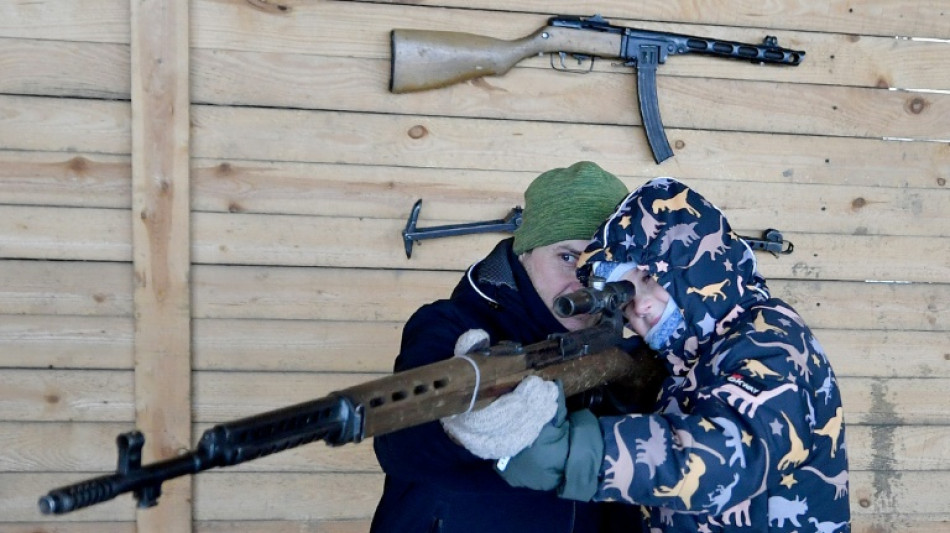
-
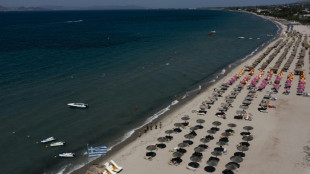 Greece set new tourism record in 2025
Greece set new tourism record in 2025
-
Zelensky says Ukraine unbroken after 4 years, but Russia vows to fight on
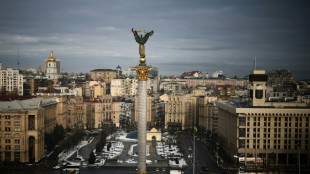
-
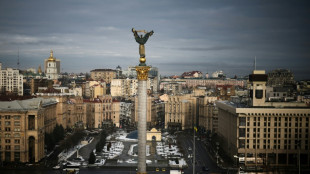 Zelenksy says Ukraine unbroken after 4 years, but Russia vows to fight on
Zelenksy says Ukraine unbroken after 4 years, but Russia vows to fight on
-
Snoop Dogg 'can't wait' for first Swansea visit
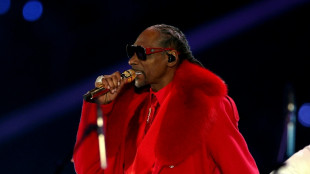
-
 Stocks fluctuate as traders assess AI fallout, tariffs
Stocks fluctuate as traders assess AI fallout, tariffs
-
Post-it maker 3M faces Belgian trial over 'forever' chemicals

-
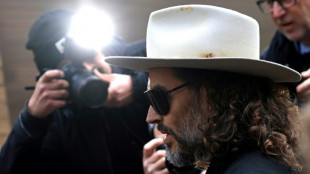 UK comedian Russell Brand pleads not guilty to new rape, assault charges
UK comedian Russell Brand pleads not guilty to new rape, assault charges
-
Duterte drew up 'death lists', boasted about murders: ICC prosecutor
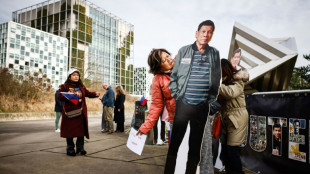
-
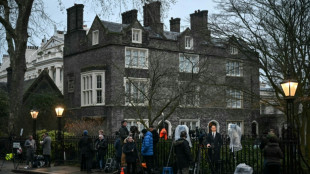 UK govt urged to release documents linked to ex-prince Andrew
UK govt urged to release documents linked to ex-prince Andrew
-
Rights group slams treatment of viral Japanese monkey
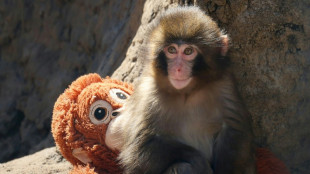
-
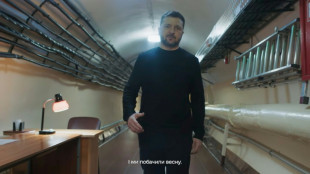 Inside the bunker where Zelensky led response to Russian invasion
Inside the bunker where Zelensky led response to Russian invasion
-
France demands explanation from US envoy over 'surprise' no-show
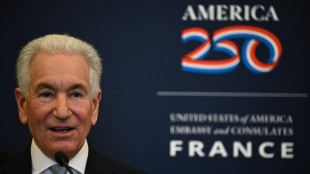
-
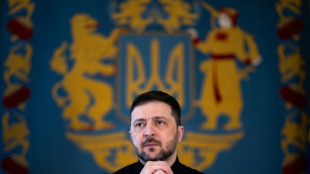 Putin failed to achieve goals in Ukraine, Zelensky says on war anniversary
Putin failed to achieve goals in Ukraine, Zelensky says on war anniversary
-
China tightens Japanese trade restrictions as spat worsens
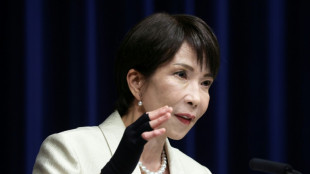
-
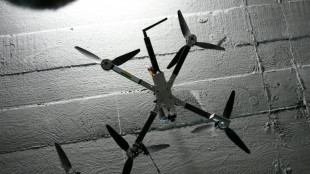 Ukraine war exhibition opens at Berlin Nazi bunker museum
Ukraine war exhibition opens at Berlin Nazi bunker museum
-
Jihadist threat puts eastern Senegal on edge
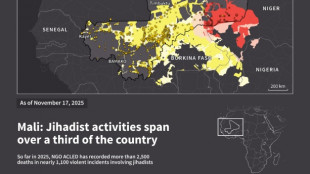
-
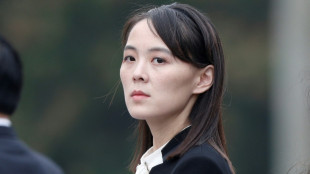 Kim Yo Jong: the powerful sister behind North Korea's supreme leader
Kim Yo Jong: the powerful sister behind North Korea's supreme leader
-
North Korea ruling party promotes Kim Jong Un's younger sister
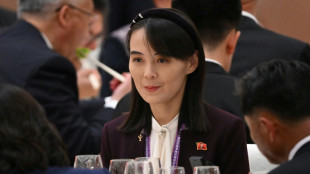
-
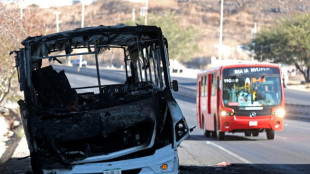 Mexico's Jalisco cautiously tries returning to normal after cartel violence
Mexico's Jalisco cautiously tries returning to normal after cartel violence
-
Mexico's violence-hit Guadalajara to host World Cup games
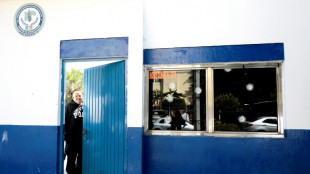
-
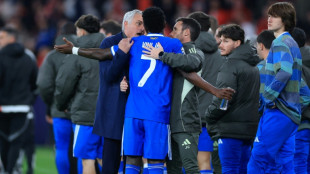 Mourinho's Bernabeu homecoming upended by suspension, racism row
Mourinho's Bernabeu homecoming upended by suspension, racism row
-
China targets Japanese companies over military ties
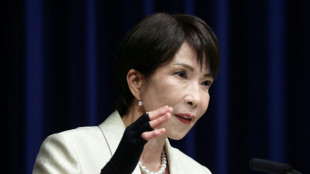
-
 Griezmann in talks to join MLS side Orlando City: source
Griezmann in talks to join MLS side Orlando City: source
-
France to revoke US envoy's govt access after summons no-show
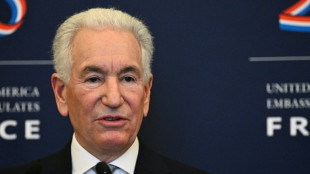
-
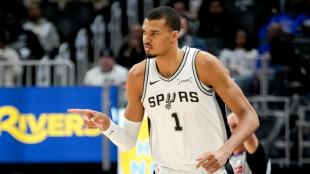 Spurs overpower Pistons in clash of NBA's form teams
Spurs overpower Pistons in clash of NBA's form teams
-
Inoue to fight Nakatani in Tokyo in May: reports
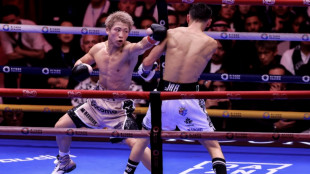
-
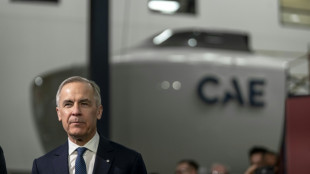 Canada PM to push trade, rebuild fractured ties in India trip
Canada PM to push trade, rebuild fractured ties in India trip
-
Asian markets mixed as traders weigh AI and tariffs outlook

-
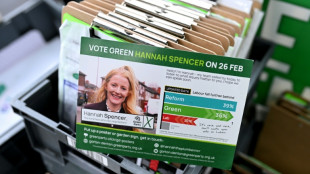 Votes may 'melt like snow': Reform, Greens eye Labour UK bastion
Votes may 'melt like snow': Reform, Greens eye Labour UK bastion
-
Venezuela says exiles welcome to return following mass amnesty
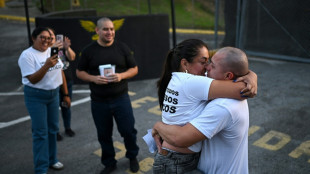
-
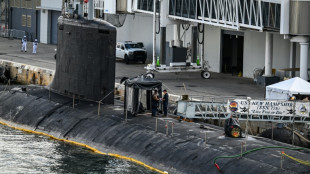 Australia buys parts for future AUKUS sub reactor
Australia buys parts for future AUKUS sub reactor
-
Ukraine marks four years since Russian invasion
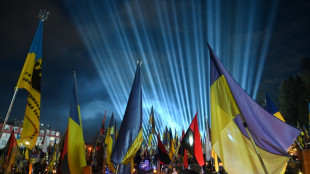
-
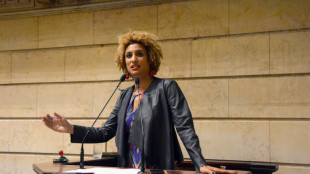 Brazil court to try politicians over hit on black councilwoman
Brazil court to try politicians over hit on black councilwoman
-
Interim president says Venezuelans welcome to return after amnesty law
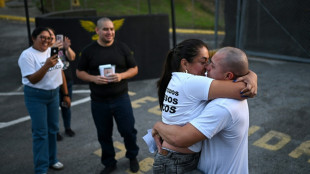
-
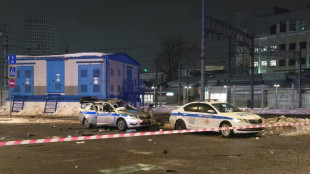 Man kills police officer in Moscow train station blast
Man kills police officer in Moscow train station blast
-
Despite drop in 2025, Russian oil exports exceed pre-war volumes: report

-
 ARIA Cybersecurity Announces Major Oil Refiner Deploys AZT PROTECT(TM)
ARIA Cybersecurity Announces Major Oil Refiner Deploys AZT PROTECT(TM)
-
Greene Concepts Announces Major Be Water Expansion in Walmart Stores Across the Southeast

-
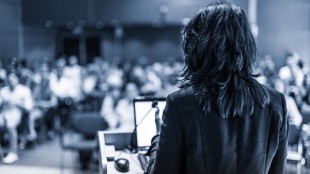 Fuse Battery Announces Amended Subscription Receipt Financing Details
Fuse Battery Announces Amended Subscription Receipt Financing Details
-
Lightwave Logic, Inc. Provides Update on Commercial Pipeline and Announces Timing of Fourth Quarter and Full Year 2025 Earnings Call

-
 Unlearn Advances Huntington's Disease AI Modeling Through Access to CHDI Foundation Data
Unlearn Advances Huntington's Disease AI Modeling Through Access to CHDI Foundation Data
-
Protagonist Therapeutics to Participate in Multiple Investment Bank Conferences in March 2026

-
 Specificity (OTCID:SPTY) to Present on the Emerging Growth Conference on February 26th, 2026.
Specificity (OTCID:SPTY) to Present on the Emerging Growth Conference on February 26th, 2026.
-
Havertys Reports Operating Results for Fourth Quarter 2025

-
 Viemed Healthcare Announces Year End 2025 Earnings Conference Call Details
Viemed Healthcare Announces Year End 2025 Earnings Conference Call Details
-
Galway Metals Drilling Intersects 9.0 g/t Gold Over 6.0m Beginning 15.0m from Surface at Southwest Deposit

-
 PeanutButterJelly Expands Affiliate Marketplace From 15 to 40 Affiliate Merchants; Website Sessions Rise 70%; Launches Conversion and Growth Optimization Plan
PeanutButterJelly Expands Affiliate Marketplace From 15 to 40 Affiliate Merchants; Website Sessions Rise 70%; Launches Conversion and Growth Optimization Plan
-
Digipower X Announces Uplisting to Cboe Canada

-
 Jaguar Mining Provides Update on Geologic Interpretation at the Chamé Gold Exploration Target, Brazil
Jaguar Mining Provides Update on Geologic Interpretation at the Chamé Gold Exploration Target, Brazil
-
Electrovaya Receives $10.5 Million P.O from Fortune 500 Customer


'Existential war': Putin steels Russia for long conflict
When Russia introduced patriotism classes in primary and secondary schools last September, Tatyana Chervenko decided she was not going to peddle Kremlin "propaganda" to her eighth-grade students in Moscow.
The 49-year-old used some of the classes to teach maths instead and ignored talking points pushed by the Kremlin about the conflict raging in Ukraine.
Chervenko was motivated by her concern that authorities were using Soviet-style tools to foster patriotism and militarise society -- just weeks before the Kremlin announced the first army call-up since World War II.
Her act of protest did not go unnoticed.
The school administration formally reprimanded her twice, and in October masked men showed up at her work, bundled her into a police vehicle and detained her for several hours.
In December, after resisting mounting pressure from her employers, Chervenko was fired.
"They want to produce little soldiers. Some little soldiers will go to war, other little soldiers will make ammunition and a third group will develop software to support those efforts," Chervenko told AFP.
"They are playing a long game."
- 'Radical transformation' -
Political analysts and sociologists say that one year after Russian President Vladimir Putin ordered troops into Ukraine, the Kremlin is putting society on a war footing and digging in for a years-long conflict.
Putin delivered his New Year's Eve address this year surrounded by uniformed personnel, and rallied Russians behind the offensive in Ukraine and confrontation with the West.
Sociologist Grigory Yudin said the Kremlin was preparing Russians for a "major, existential war" and the education system was being leveraged to meet that goal.
"We are talking about a radical, complete transformation of education to mobilise Russian youth for war," Yudin told AFP.
"Right now education has two functions -- propaganda and basic military training."
The patriotism classes -- dubbed "Important Conversations" -- combine World War II revisionism, lessons on Russian values and the Kremlin's narrative about Moscow's troops "protecting" compatriots in Ukraine.
Schools have also been ordered to play the national anthem and hoist the flag at the start of each week.
The education ministry is expected in September to introduce courses in high schools and universities on handling Kalashnikov assault rifles and grenades, in an echo of Soviet times when these were curriculum staples.
Across Russia, schoolchildren are also being encouraged to send letters to Russian soldiers in Ukraine and make camouflage nets and candles for the trenches.
The government's sweeping campaign to boost patriotism within society is targeting adults, too.
Billboards hailing Russian soldiers and the letter Z -- Moscow's symbol for the assault -- are omnipresent across the country.
Putin has ordered cinema screenings of documentaries dedicated to the offensive in Ukraine.
And military journalists working for state media have gained celebrity status. One was selected to sit on the Kremlin's human rights council.
- 'Death cult' -
For years, Putin used World War II as a rallying cry for his political agenda, giving the Soviet Union's victory over Nazi Germany a cult-like status.
Now, state television and the Orthodox Church are building on that army pride and taking it to new heights.
"There is a glorification of war and elements of a death cult," Yudin said.
In September -- when Putin called up hundreds of thousands of reservists -- the head of the Russian Orthodox Church, Patriarch Kirill, said during a sermon that dying in Ukraine "washes away all sins".
One of the country's leading propagandists, Vladimir Solovyov, told Russians to stop fearing death.
"Life has been greatly overrated," he said on state television in January. "Why fear what's inevitable?"
For Andrei Kolesnikov, a senior fellow at the Carnegie Endowment for International Peace, these developments point to Russia's creeping return to totalitarianism.
The Kremlin's logic, Kolesnikov told AFP, is that "future generations should obediently implement the will of the state".
"This is no longer just an authoritarian state," he warned.
Sociologists say that the Kremlin's patriotic push is winning over many Russians, despite government plans to slash social spending and allocate an estimated third of the budget to defence and security this year.
- 'Military way of life' -
Putin supporter Nikolai Karputkin says he backs "the special military operation" in Ukraine, the Kremlin's official name for the conflict.
"We are at war with the West, with Western values, which they are trying to impose on us," Karputkin told AFP at a military-themed leisure park outside Saint Petersburg.
The 39-year-old -- who brought his family to the park, where children and their parents can ride battle tanks and handle weapons -- said he was also in favour of basic military training in schools.
"We have to boost patriotism," he said. "This is a good thing."
"We have to defend the traditional values and the sovereignty of our motherland."
Yudin, the sociologist, said Russian authorities would promote military and patriotic sentiment as long as they deemed necessary.
"The military way of life will last as long as Putin and his team are in the Kremlin," said Yudin.
"If they stay there for 20 years, then Russia will fight for 20 years."
A.Rodriguezv--AMWN



